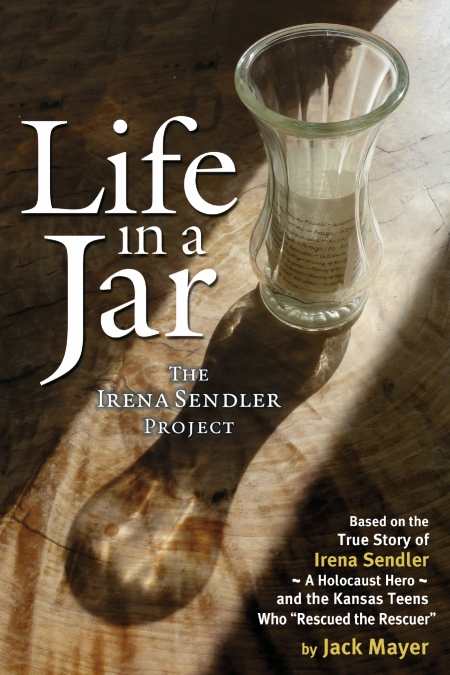Life in a Jar
The Irena Sendler Project
This gripping story of children’s quest for historical truth reads like a novel.
In the educational and thought-provoking Life in a Jar: The Irena Sendler Project, Jack Mayer offers a history lesson, as well as a powerful life lesson about how one person can impact the lives of many.
Mayer tells the true story of three high school students from Kansas who embark on a quest to develop a project for National History Day, a national competition they were encouraged to enter by their social studies teacher. As they browse research files for an idea for the project, they stumble on a magazine article about Irena Sendler, a Catholic social worker who helped Jewish parents smuggle their children out of the Warsaw Ghetto during World War II. She relocated 2,500 children, saving them from death camps. Stunned and appalled they had not learned about Irena in earlier history classes, and that seemingly few others in the world had heard of her, the girls set out to write a ten-minute play about her life.
Word of the project grows in their small Kansas town as they perform rehearsals for the competition; their heartfelt reenactment of Irena’s story ultimately has a profound effect on the competition judges, too. The play receives extensive media attention, and synagogues, schools, and civic organizations ask them to perform it. They accomplish their main goal: to publicize the heroic actions of Irena Sendler.
While Life in a Jar is based on a true story, it reads like a novel. Mayer uses a narrative storytelling style, and he masterfully and seamlessly weaves together the personal stories of Irena and the students. In Part I, he immediately draws readers in by starting with the girls’ backstories and the inception of the project. The reason the girls feel so compelled to tell this story soon becomes clear: They are all experiencing challenges with their own parents—particularly their mothers, either due to illness or abandonment—and they hope to find answers to questions that haunt their own lives. In Part II, Mayer retraces Irena’s harrowing experience in Warsaw during the war. Part III has many twists and turns, and a few shocking revelations, as in any gripping novel.
This stimulating book is a story about human decency, courage, and social justice. It will appeal to anyone with an interest in history, as well as teachers of all subjects, especially history and religion. But it has much wider human-interest appeal as well, due mostly to Mayer’s extensive primary-source research, which includes several personal interviews. He reveals the inner thoughts of the people involved—their joys, struggles, and fears—pulling the reader in on an emotional level early on and sustaining that interest throughout the book.
Through this powerful book, Mayer continues the girls’ effort by telling Irena’s story to a wider audience, and further illustrating how one person can potentially change the lives of so many.
Reviewed by
Maria Siano
Disclosure: This article is not an endorsement, but a review. The publisher of this book provided free copies of the book and paid a small fee to have their book reviewed by a professional reviewer. Foreword Reviews and Clarion Reviews make no guarantee that the publisher will receive a positive review. Foreword Magazine, Inc. is disclosing this in accordance with the Federal Trade Commission’s 16 CFR, Part 255.


